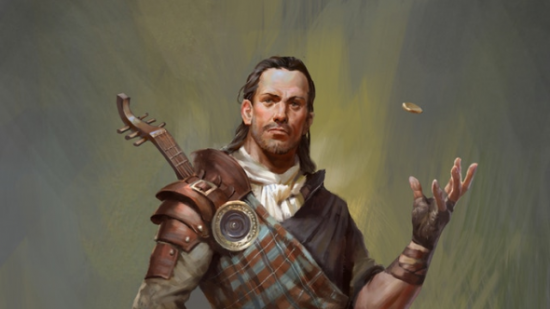If you left Brian Fargo on a desert island he would find a way to rub two sticks together and make a deal. Which is just as well, because a desert island is more or less where he found himself between the years of 2002 and 2012. The story of inXile, developers of Wasteland 2 and Torment: Tides of Numenera, one of the leading lights of the modern RPG revival, is a decade-long struggle for survival. And it was only through the endless hustle of Fargo that they stayed alive long enough to turn the industry upside down.
Read more: the finest RPGs on the PC.
“I have a horrible resume,” Fargo tells us. “Two jobs.”
The first was at Interplay, which he founded and built into one of the preeminent games publishers of the ‘90s. Fallout, Redneck Rampage, Earthworm Jim: if there is something offbeat you remember fondly from that era, there is a good chance that Interplay paid for it to be made.
But by the turn of the century Fargo was tiring of his first job. “I was doing anything but product development,” he recalls. “It was all dealing with investors, corporate fighting, managing morale, trying to find strategic partners. I wasn’t very happy.”
And so he left. Fargo lasted all of three months on the couch. He organised his CD collection. He played a lot of games. But by the time E3 rolled around, the workaholic CEO was ready to get back to it. He and Matt Findley, who later served as inXile’s president, attended without any company or job titles to put on their badges. And so Fargo gave himself a rather melodramatic title in reference to his departure from Interplay: ‘Leader in Exile’. By the end of the show, strangers were hunting him down for his business card. “We’re onto something here,” Fargo thought. inXile was born.
Game development teams are often thrown together hurriedly around a new contract, but inXile started slowly. Fargo picked staffers he knew and trusted. Findley was one. Another was Maxx Kauffman, who he had seen do great work on Redneck Rampage.
“I brought them together,” Fargo says. “But then it became, ‘OK, what are we going to do here?’. And this struggle to find a business model took nearly a decade.”
That jokey card title was proving prophetic. In 2002, the ground was shifting beneath the feet of RPG developers. There was very little publisher interest in PC games. With Steam still years off, the digital sales business did not exist. And those contracts that did exist were mostly reserved for studios that were already well-established.
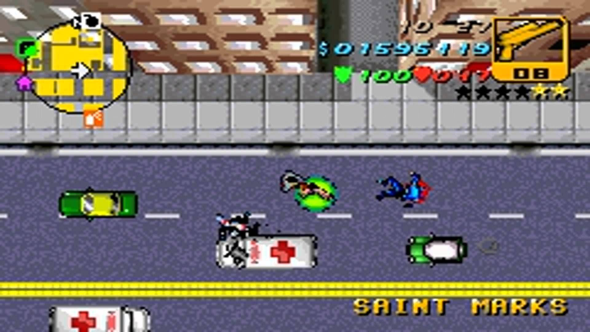
Fargo kept the lights on by “hustling around.” He attempted, without success, to win the Baldur’s Gate 3 license from Infogrames. He sold the Wizardry franchise off to Japan, where it continues to this day. For a short while, Fargo and a friend co-owned half the rights to GTA for Game Boy.
“We both did very well by selling it back to Take-Two,” he says.
It is funny to realise that Fargo was making ripples in the industry even as he was treading water. Perhaps the most significant thing he did during the early days of inXile was help out his ex-employees at Interplay.
“They were not getting paid, and they were crying to me,” he remembers. “And I was saying, ‘I can’t do much’. But it kept going on, so finally I said, ‘OK, I’ll jump in and help’.”
It was Fargo who filed involuntary bankruptcy on Interplay’s behalf – which was ultimately the reason that Bethesda were able to buy Fallout. “They sold to Bethesda, got about $3 million, and all my people got paid,” Fargo puts it. “Everyone was happy.”
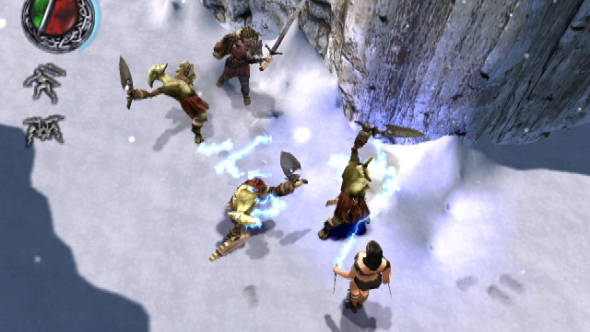
Well: nearly everyone. Fargo was itching to get back to making games – the impetus that had caused him to leave Interplay in the first place – and found out that the trademark had expired on The Bard’s Tale, the very name that had made a success of his first company. It felt serendipitous. Fargo did not own the copyright to the classic RPG series, however, so could not work on a straight-up sequel. Instead, he decided to create a genre parody.
inXile’s The Bard’s Tale, released in 2004, is very much a snapshot of the market at that time: a console-focused action-RPG and broad comedy, a world away from Tides of Numenera. It was as if there was no space for an RPG that took itself seriously. inXile licensed the Baldur’s Gate: Dark Alliance engine from Snowblind, and made publishing deals with Vivendi in the US and Acclaim in Europe.
“It was kinda funny,” Fargo says, though he is not laughing. “Right as we were launching, Vivendi sells the company and Acclaim goes out of business.”
inXile, however, survived. The hustle went on.

“I’ve always been keen on looking out for great talent or a really great idea,” Fargo says. One day, his staff showed him Line Rider. You probably played it around the time: a browser game in which you drew the slope for a sled to follow. inXile acquired the rights, released Line Rider in the App Store, and hit number one in the iOS charts.
“We sold a million copies at $1.99,” Fargo says. “It was beautiful.”
It was a similar story with Impossible Quiz, which hit number two after inXile adapted it for iOS. And Fantastic Contraption, the surreal building game from “indie darling” Colin Northway, which reached the top five.
“The thing about it was, even though I was making money on all of those, I never felt it was repeatable,” Fargo says. “It was so crazy and random. And it’s one thing to sell a million copies when you’re sitting at home in your underwear. But I had a whole payroll to do, so it’s not as grand as it sounds. Really what I wanted to do was get back to self-publishing and making role-playing games.”
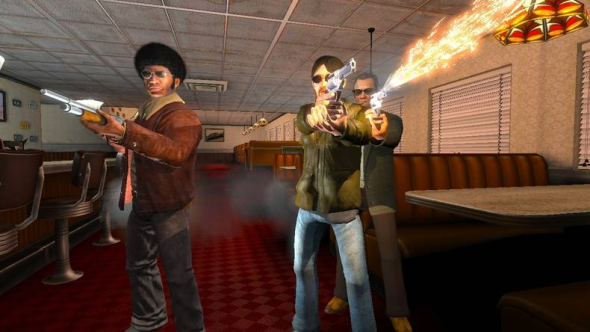
But it was not working. While inXile were developing games such as pet simulation Purr Pals, Fargo was increasingly shocked by the tone struck by publishers, handling bigger budgets and more power than ever.
“It used to be that if you had a good game, there were four different places wanted it,” he remembers. “But now it wasn’t that way. The atmosphere was very tough.”
Fargo often sympathised with the publishers he was pitching to, since he had sat in their chair. But sometimes the rebuttals he got seemed nonsensical. A new Wasteland game was turned down by a company that said it preferred to have series that people had never heard of before. “What’s the upside of that?,” he asks.
Sometimes, inXile would get close to making the games they wanted to make. For a while they worked on a game for Codemasters called Hei$t, which Fargo describes as a single-player version of Payday.
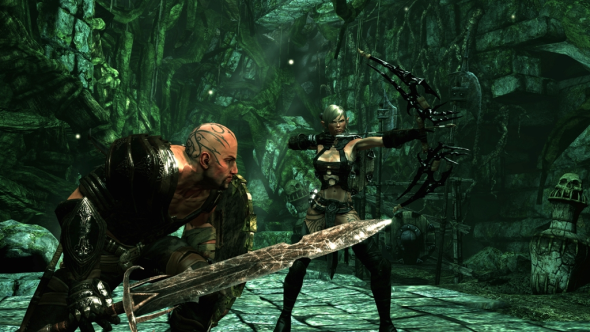
“It was all Quentin Tarantino dialogue, and they really wouldn’t let us finish it,” he says. “Christian Slater and Clancy Brown were in it. We had a great cast. That was a product I wish we could have finished properly and come out with.”
Even Hunted, a fantasy take on Gears of War that inXile saw through to the end, came with a dramatic comedown. At the peak of development, the company swelled to 70 people, and afterwards shrank right down to 13.
“Persistence is just everything,” Fargo says. “I would have months upon months of bad news. Of just nothing working out. Something going sideways, pitches that you thought were going to happen, contracts that blew up at the last minute, products that didn’t work. You’ve got to strap on and be ready for bad news all the time.
“And you know, I’m human, it gets you down. But guess what, the next morning it gets your ass up out of bed and you find some way to make it happen. That’s what you do.”
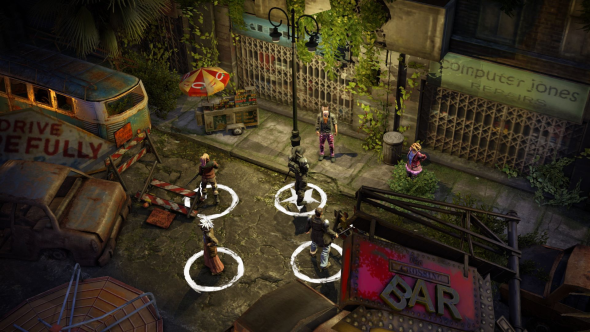
Despite Fargo’s doggedness, a decade of scrambling for work had taken its toll. If you had attended his GDC China 2011 keynote, you would have heard a former RPG developer suggest the genre he loved might be over. Fargo was not enjoying working for other people, and there was no reason to believe things would change. inXile could not know that an incredible upturn was just around the corner.
On March 13th, 2012, the Kickstarter page for Wasteland 2 went live – a hail mary with no back-up plan. Fargo poured a decade of frustrations into the pitch video, culminating in a pastiche publisher meeting in which he attempted to persuade a child in a suit to fund the sequel.
Those frustrations, not to mention the dream of a classic-style isometric RPG, resonated with fans – and have kept resonating since. Torment: Tides of Numenera proved it was repeatable. This was the business model Fargo had been looking for. Since then, inXile have made a habit of over-delivering, sinking extra money into their Kickstarter projects, and checking more than the minimum boxes promised. They have generated enough goodwill that their next few years are already accounted for, with both Wasteland 3 and Bard’s Tale IV comfortably crowdfunded.
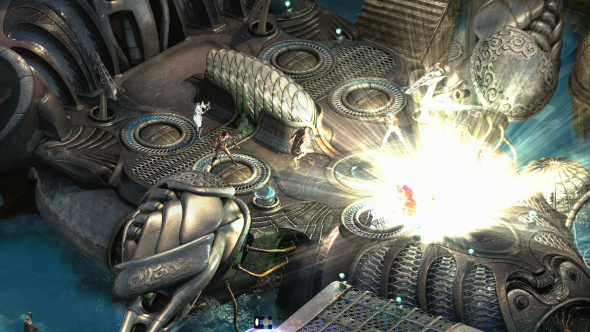
What’s more, inXile have become a known name. Kickstarter development needed a face, and Fargo – a man who understood the business from both sides, and could happily explain the ins and outs to a journalist on Skype for an hour – became that face.
Fellow developers who had been discretely chasing the same contracts over the decade Fargo now calls the “Dark Ages” would now call him for advice on their own campaigns.
“I was a complete open book,” he says. “I told them everything.”
Now, a community of classic RPG developers – inXile, Obsidian, Harebrained, Larian – routinely promote each other’s work. For the first time perhaps ever, the genre now looks like a scene, supportive and excited for the future. The way Fargo tells it, this is another, friendlier form of hustle.
“It’s made it all more Kumbaya that it ever has before,” he notes. “Because ultimately, we’re all fighting for crumbs down here. It’s Activision and EA that are making the real money. So let’s all work together and we’re more powerful as a force.”
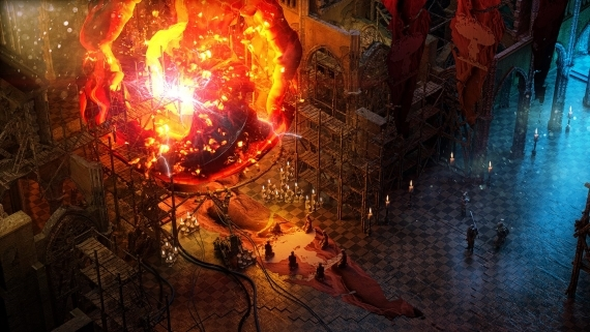
Fargo has said he plans to retire after Wasteland 3 ships in 2019. It remains somewhat difficult to believe.
“I’ve got years,” he says. “It seems forever away from right now. It’s hard, because I love the industry and working with smart people. On the other hand, you’ve really got to be in it 24/7. It’s ten hour days and there’s a constant dialogue in the industry that you need to be tuned into. You could do 99 things right and just step on that wrong button. I find that to be all-consuming. So while my friends play golf I’m never doing anything else. Sometimes I feel compelled to not work on a Friday.”
Somewhere in Newport Beach, California, there is a CD collection that needs reorganising.
